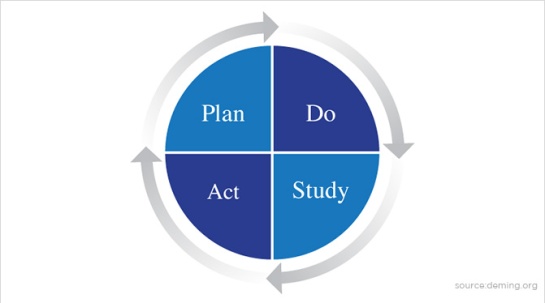We’re Doing Continuous Improvement All Wrong
We’re Doing Continuous Improvement All Wrong
Why Is Continuous Improvement Still Rare?
Continuous improvement is seldom seen, despite its promised value. Could it be that the rarity of effective continuous improvement is due to flaws in the commonly employed PDSA model?
Does PDSA Trap Us in a Loop?
The PDSA cycle often ends up reinforcing rather than challenging the status quo. A major part of the problem lies in the unchanging collective assumptions and beliefs that underpin the PDSA process.
How Can Organisational Psychotherapy Help?
Organisational psychotherapy can play a crucial role in transforming PDSA from a loop of reinforcement to a cycle of genuine improvement. By focusing on continually shifting collective assumptions and beliefs, by degrees, organisational psychotherapy provides means to redefine the context of the PDSA cycle.
- Spot the Blind Spots: Psychotherapeutic techniques can help identify the invisible beliefs and assumptions that guide the organisation’s decision-making process. These revelations are critical in modifying PDSA to truly serve continuous improvement, especially improvement to the organisational memeplex. What counts as “improvement”, here? Improvement means shifitng collective assumptions and beliefs into more productive alignment with the goals, purpose and aspirations of the organisation.
- Change from Within: Organisational psychotherapy facilitates a deep, fundamental shift in collective beliefs. This sets the stage for a more meaningful and effective PDSA cycle.
Can Psychotherapy and PDSA Coexist?
The beauty of incorporating organisational psychotherapy into PDSA is that the two work in tandem, feeding into each other for a more dynamic and effective CI process.
- Continuous Self-Assessment: Just as in individual therapy, the organisation can choose to engage in continual self-examination to ensure that the assumptions driving the PDSA cycles are current and accurate.
- Diverse Perspectives and Open Dialogue: Psychotherapy encourages open communication, which can be valuable in diversifying the inputs in the PDSA cycle. The more perspectives you have, the less likely you are to perpetuate false assumptions.
- Mindfulness: While data is important, Cf. Statistical Process Control, organisational psychotherapy adds another layer by focusing on the far more significant emotional and psychological aspects of decision-making.
- Iterative Reassessments: Both PDSA and organisational psychotherapy are iterative by nature. Use regular checkpoints to measure the shift in collective assumptions and beliefs and adjust the PDSA cycle accordingly. Cf. Hearts Over DIamonds.
What’s the Way Forward?
By marrying the principles of organisational psychotherapy with the PDSA model, businesses can finally unlock the true potential of continuous improvement and the Deming Cycle. This dual approach not only revitalises PDSA but also equips it to genuinely drive Rightshifting change, rather than perpetuate the status quo.

